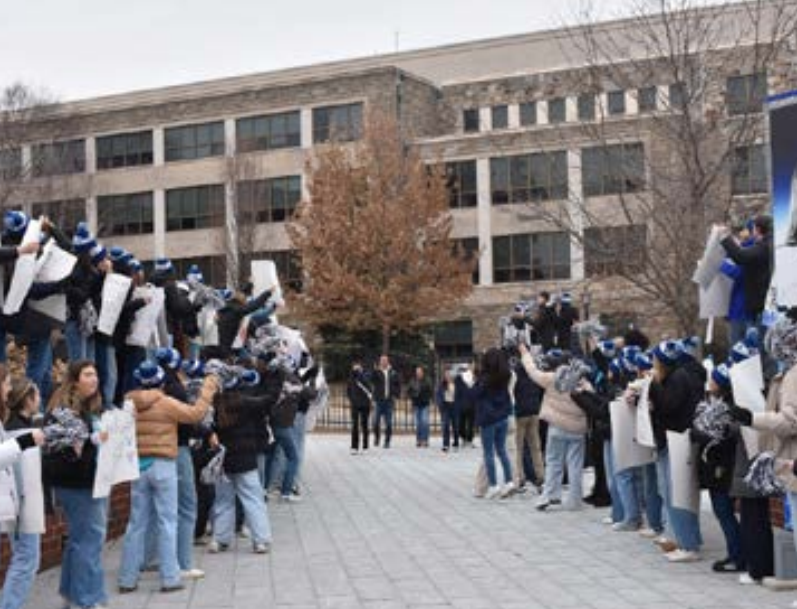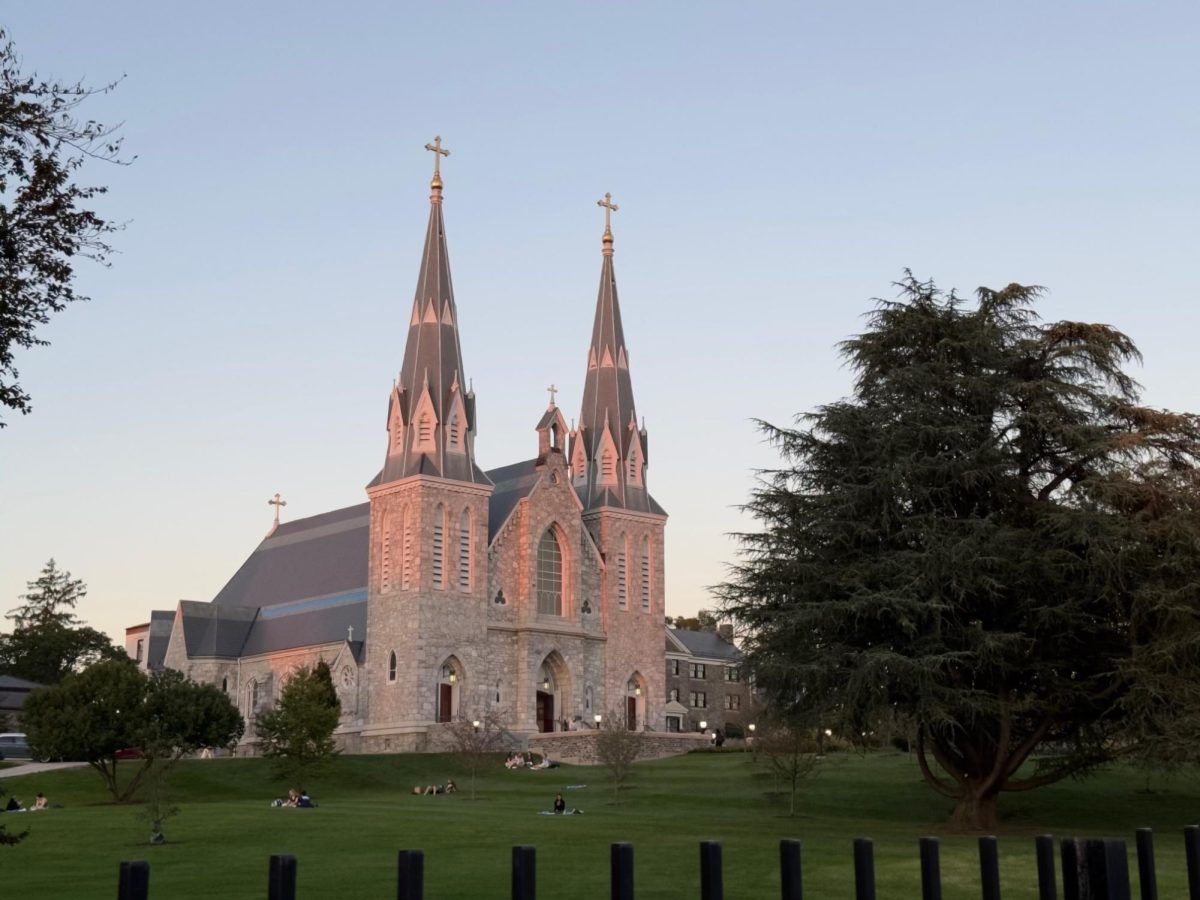Last week, the Center for Arab and Islamic Studies hosted Arab-American author Ghassan Zeineddine to discuss his book, Dearborn. Ghassan Zeineddine’s debut collection examines the diverse range and complexities of the Arab-American community in Dearborn, Michigan. In 10 tragicomic stories, Zeineddine explores themes of identity, generational conflicts, war trauma, migration, sexuality, queerness, home and belonging. Zeineddine currently serves as an assistant professor in creative writing at Oberlin College in Ohio and traveled to Villanova to speak to students about his book.
Villanova students in Professor Abboud and Kalleeny’s Arab Diasporas course read Zeineddine’s book as a part of their curriculum and were able to hear from him directly. Dr. Samer Abboud, the Director of Center for Arab and Islamic Studies, warmly welcomed Zeineddine during the timely Arab American heritage month. Zeineddine introduced himself and told students and attendees about his upbringing and how it led him to Dearborn.
Zeineddine grew up in Lebanon and then moved to the D.C. area but told students he truly never felt at home in the states. He told students about his isolating experience living in the states without an Arab-American community, as he didn’t grow up with Arab friends.
He then discussed the impact of moving to Dearbron had on his life and his connection to the Arab-American community there.
“The Arab identity is so visible there,” he said. “I felt very much at home. It was the only place in this country that I really felt at home.”
The city of Dearborn is calmly referred to as Arab-America, as it is home to the largest population of Arab-Americans.
Zeineddine discussed the way geopolitical events caused mass migration from the Arab world to the states, specifically to Dearborn. He mentioned the U.S Invasion of Iraq, the Iraqi Civil War, Civil Strife in Syria and Yemen, and the creation of the state of Israel as events that led to migration to Dearborn.
Zeineddine discussed the pre-existing Arab literature that documented the isolating experience of living without community and that he wanted to write about something else, like the thriving community of Dearborn.
He then began to tell students about his inspiration for the 10 short stories, all of which followed a diverse array of Arab-American characters living in Dearborn.
“Each story was inspired by living in the city of Dearborn,” Zeineddine said. “I set the
stories in different time periods to highlight how the Arab American community in Dearborn expanded.”
Zeineddine discussed the strong presence of ICE agents patrolling Dearborn during Trump’s first presidency, and how he wanted to portray this reality within the stories. He told attendees about a personal experience dining in Dearborn and witnessing ICE agents come in and demand papers for the diner employees.
“It creates a weird dichotomy where you feel at home, but you never know when ICE might come, so I wanted to capture that,” Zeineddine said.
With such serious topics, Zeineddine also noted the necessity of comedic writing during his novel. He wanted to portray serious topics that affected the Arab-American community of Dearborn, but also comedically engage his readers.
Zeineddine then read excerpts of three of the short stories, Rabbit Stew, Speedoman and Money Chickens.
After Zeineddine read excerpts from the novel, he welcomed questions and comments from students and other attendees.
One student asked Zeineddine about his understanding of women’s issues in the novel, and how he documented the diverse experiences of Arab American women.
“There’s so many western stereotypes and misrepresentations of Arab women,” Zeineddine said. “I really wanted to resist that. The Arab-American experience is very diverse, I wanted to show that diverse range of female characters.”
Zeineddine also mentioned the influence of his female family members, having grown up around strong-willed women which naturally seeped into his writing.
Another student asked about takeaways of the short stories, as they all addressed similar themes with diverse experiences.
“The Arab American community in Dearborn is very diverse,” Zeineddine said. This is just a book about Dearborn, not the book.”
He concluded with the idea of what it means to be Arab-American.
“There is a diverse range of experiences about what it feels to be Arab American,” Zeineddine said. “You don’t have to be of Arab descent for these stories to resonate with you.”
Throughout the month of April, the center for Arab and Islamic Studies will be hosting several events in celebration of Arab American Heritage Month.
Students can check out the center’s website to stay up to date on upcoming events.





